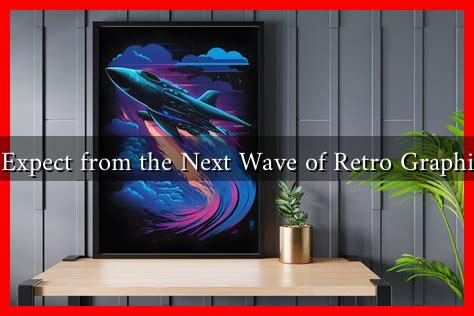-
Table of Contents
What to Expect from the Next Wave of Retro Graphic Design
As we move further into the 21st century, the cyclical nature of design trends continues to reveal itself. Retro graphic design, characterized by its nostalgic elements and vintage aesthetics, is experiencing a resurgence. This article explores what to expect from the next wave of retro graphic design, examining its influences, emerging trends, and the impact of technology on this creative movement.
The Nostalgic Pull of Retro Design
Retro graphic design taps into a collective nostalgia, evoking memories of past decades. This emotional connection is a powerful driver for brands and designers alike. According to a study by Psychology Today, nostalgia can enhance brand loyalty and consumer engagement, making retro aesthetics a strategic choice for marketers.
Key Influences Shaping the Next Wave
The next wave of retro graphic design is influenced by various cultural and technological factors:
- Digital Nostalgia: The rise of digital media has made it easier to access and remix vintage styles. Designers are increasingly using software to recreate the look and feel of past eras.
- Social Media Trends: Platforms like Instagram and TikTok are amplifying retro aesthetics, with users sharing vintage-inspired content that resonates with younger audiences.
- Environmental Consciousness: The retro movement often emphasizes sustainability, with many designers opting for vintage materials and techniques that reduce waste.
Emerging Trends in Retro Graphic Design
As we look ahead, several trends are emerging within the retro graphic design landscape:
- 80s and 90s Revival: Expect to see a resurgence of bold colors, geometric shapes, and pixel art reminiscent of early video games. Brands like Nike have already embraced this trend in their marketing campaigns.
- Hand-Drawn Elements: The charm of hand-drawn illustrations is making a comeback, offering a personal touch that contrasts with the sleekness of modern design.
- Retro Typography: Vintage fonts, particularly those from the 70s and 80s, are being reimagined for contemporary use, adding character and warmth to digital and print media.
Case Studies: Brands Embracing Retro Design
Several brands have successfully integrated retro graphic design into their identity, showcasing its effectiveness:
- Coca-Cola: The brand’s use of retro packaging and advertising campaigns has successfully evoked nostalgia while maintaining relevance in today’s market.
- Levi’s: By reviving classic denim styles and marketing them with retro-inspired graphics, Levi’s has tapped into the nostalgia of its heritage while appealing to a new generation.
- Pepsi: The “Pepsi Generation” campaign from the 1980s has been revitalized, using retro graphics to connect with consumers who remember the original ads.
The Role of Technology in Retro Design
Technology plays a crucial role in the evolution of retro graphic design. Tools like Adobe Creative Suite and Procreate allow designers to experiment with vintage styles while maintaining high-quality outputs. Additionally, advancements in printing technology enable the reproduction of retro designs with precision and vibrancy.
Moreover, the rise of augmented reality (AR) and virtual reality (VR) is opening new avenues for retro design. Brands can create immersive experiences that transport users back in time, enhancing the nostalgic appeal.
Conclusion: The Future of Retro Graphic Design
The next wave of retro graphic design promises to be an exciting blend of nostalgia and innovation. As designers draw inspiration from the past while leveraging modern technology, we can expect to see a rich tapestry of styles that resonate with both older and younger audiences. By understanding the emotional connection that retro design fosters, brands can effectively engage consumers and create lasting impressions.
In summary, the resurgence of retro graphic design is not just a fleeting trend; it is a reflection of our desire to connect with our history while embracing the future. As we move forward, expect to see a vibrant mix of styles that celebrate the past while pushing the boundaries of creativity.

